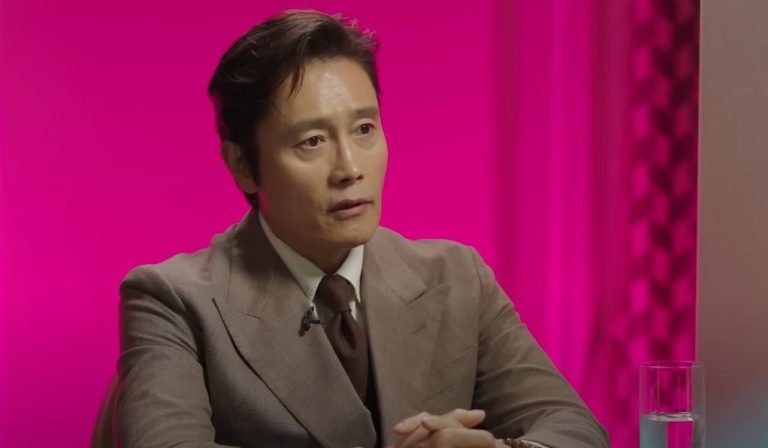Lee Byung-hun has been a major player in the film industry for more than thirty years; she is especially well-known for her ability to move between Korean and American cinema with ease. Depending on the source of the valuation, Lee’s estimated net worth ranges from $20 million to $115 million. He has amassed his wealth through astute business choices, most notably his ownership of BH Entertainment, in addition to his acting career. This talent management firm excels at developing and promoting Korean talent on international stages.
Like his career, his financial journey has been incredibly dynamic. With remarkable agility, he made the leap from television dramas in the 1990s to film, breaking box office records with Joint Security Area in 2000. In addition to winning accolades, that performance established the standard for a career characterized by roles that push boundaries. Lee created a portfolio that is both commercially bankable and regarded as art by carefully associating with directors such as Park Chan-wook and Kim Jee-woon.
Lee Byung-hun – Key Facts and Career Highlights
| Full Name | Lee Byung-hun |
|---|---|
| Date of Birth | July 12, 1970 |
| Place of Birth | Seoul, South Korea |
| Nationality | South Korean |
| Profession | Actor, Producer, Entrepreneur |
| Net Worth (2025) | Estimated $20 million – $115 million |
| Famous Works | Iris, G.I. Joe, Squid Game, Mr. Sunshine |
| Spouse | Lee Min-jung (m. 2013) |
| Children | Two |
| Company | BH Entertainment |
| Known For | International acting success, philanthropy, K-drama excellence |
Lee’s global reach has grown dramatically in recent years, especially with the emergence of streaming services. His international visibility has significantly increased as a result of his role as the Front Man in Netflix’s Squid Game. He became not only a well-known face but also a reliable anchor in a series that garnered over 1.6 billion viewing hours thanks to that show, which was talked about extensively on different continents. Due to decades of steady excellence, Lee’s income and reputation stayed firmly rooted even as more recent actors rose to fame.
His performance in Squid Game was the culmination of a meticulously cultivated career, not a singular high point. Lee has stepped into the action movie spotlight without sacrificing his dramatic abilities, from playing Storm Shadow in the G.I. Joe series to costarring with Bruce Willis in Red 2 and Arnold Schwarzenegger in Terminator Genisys. In addition to being artistically fulfilling, these roles helped him grow his global fan base and revenue.
In addition to diversifying his revenue, Lee’s establishment of BH Entertainment influenced the careers of other Korean actors. By doing this, he established himself as a stakeholder in the industry—someone who is investing in Asian talent’s future rather than just making money from jobs. His management company uses his knowledge of the Korean and Western film industries to represent top stars and handle international negotiations.
His charitable endeavors over the last ten years have significantly enhanced his public persona. Lee has continuously set aside sizeable sums for social good, from funding COVID-19 initiatives to aiding children’s hospitals and disaster relief. Think of Angelina Jolie’s humanitarian efforts or Keanu Reeves’ subdued philanthropy as examples of celebrities who have used their fame to positively impact communities. These actions show a remarkably similar pattern.
Additionally, Lee’s influence coincides with Asian actors receiving long-overdue recognition. Veteran actors like Lee are being acknowledged for their craft as well as their heritage as Hollywood grows more inclusive. He received the Grand Bell Award for Best Actor for his particularly inventive dual-role performance in Masquerade. This breadth and depth push back against limited typecasting and pave the way for more complex Asian representation.
His career has persevered in spite of personal scandals, such as legal actions and well-publicized blackmail cases. With personal determination and professional integrity, he overcame what could have been a permanent setback. His candidness about coping with depression and panic attacks after his father’s passing brought an emotional openness that fans found incredibly relatable. Lee remained steadfast, opting to change rather than back down, in contrast to many celebrities who do the opposite.
In contrast to peers, Lee maintains a grounded lifestyle. While many celebrities seek out ostentatious investments, Lee has taken a more methodical approach. He has maintained long-term relevance by making investments in entertainment infrastructure and making meaningful public appearances. His retail endeavors such as BHNC, real estate investments, and steady acting income demonstrate a diversified portfolio that is extremely effective at producing long-term wealth.


